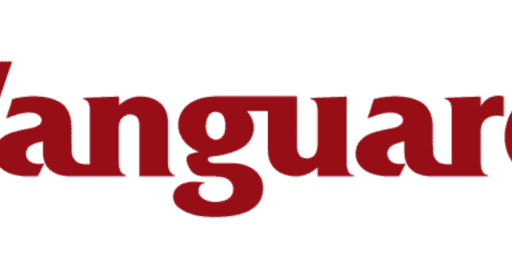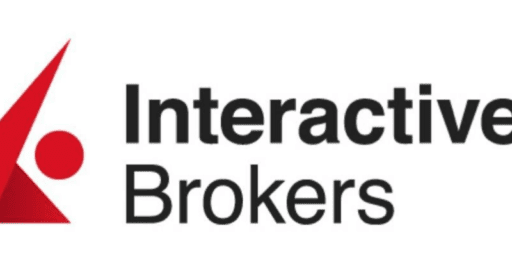Smith Manoeuvre Portfolio – August 2008
For those of you just joining us, this is my portfolio that is leveraged with money borrowed from my home equity line of credit (HELOC). As the money borrowed is used to invest, the interest charged is tax deductible. For more detail, check out the modified smith manoeuvre strategy.
Onto the business at hand. I skipped last months portfolio update as I didn’t make many changes to my holdings. Since the last update, there was a large financial and energy market sell off in July at which time we added to Power Financial (PWF), Scotia Bank (BNS), Manulife Financial (MFC) and initiated a position in Husky Energy (HSE). What can I say, I’m a contrarian at heart. Only time will tell if this strategy will work over the long term.
| Stock | Symbol | Shares | Avg Buy Price | Total | Div/Share | Yield |
| Royal Bank | RY.T | 75 | $47.62 | $3,571.25 | $2 | 4.20% |
| CIBC | CM.T | 45 | $67.14 | $3,021.25 | $3.48 | 5.18% |
| Power Financial | PWF.T | 105 | $35.14 | $3,689.65 | $1.25 | 3.56% |
| Scotia Bank | BNS.T | 75 | $46.20 | $3,465.23 | $1.96 | 4.24% |
| Manulife Financial | MFC.T | 75 | $39.42 | $2,851.99 | $0.96 | 2.52% |
| Fortis Properties | FTS.T | 50 | $27.30 | $1,365.00 | $1 | 3.66% |
| TransCanada Corp | TRP.T | 50 | $36.87 | $1,843.25 | $1.44 | 3.91% |
| FTSE RAFI US 1500 Small-Mid ETF | PRFZ.US | 20 | $51.50 | $1,029.99 | $0.42 | 0.82% |
| AGF Management Limited | AGF.B.T | 50 | $22.71 | $1,135.49 | $1.00 | 4.40% |
| Bank of Montreal | BMO.T | 25 | $44.17 | $1,104.24 | $2.80 | 6.34% |
| Husky Energy | HSE.T | 35 | $41.48 | $1,471.79 | $1.60 | 3.80% |
Total Portfolio Cost Base: $24,549.13
Portfolio Holdings Value (excluding cash) on Aug 27, 2008 : $24,234.51
Total Dividends / Year: $963.25
Portfolio Dividend Yield: 3.92%
Thus far, it seems that my portfolio has taken a small loss in contrast with the big sell offs in the markets. As of today, it seems that the banks are being sold off again as their earnings are coming in lower than expected. Perhaps it’s soon time to add to my financial positions!
Have you added to your positions during the market sell off?
I've Completed My Million Dollar Journey. Let Me Guide You Through Yours!
Sign up below to get a copy of our free eBook: Can I Retire Yet?










Frugal: Today is your chance to buy more Husky. It’s back at 42$
FT,
I think that REIT’s can provide diversification if it focuses on commercial, office space, business segments of the real estate market ( I assume that your real estate exposure is tied to residential real estate).
A reit can also provide a diversified exposure to the Canadian real estate market as a whole and not concentrated in a single province or city..
Finance_Addict, what makes me nervous about buying trusts is that they will be facing corporate tax soon which will likely result in a distribution cut which usually leads to the share price dropping. There are some trusts that seem fundamentally sound though, like some of the bigger oil players, and of course some REITS (whom will face no corporate tax).
jd, check out today’s post for my net worth update. The goal is to reach 1 million in net worth by the age of 35. I turn 29 this year.
is that most of your net worth?
how long are you planning to reach a million?
Re Mike: I’m in agreement with your post. I don’t know anyone who scored big trying to mimic and index fund. If the portfolio had an extra zero then fine spread it out. With 20K to work with I would argue that FT’s portfolio is “less risky” than picking up 1 name in say 5 different sectors.
FT, I too plan use TFSA’s to hold something that spits out a higher yield or trust to make some extra monthly cash. Over the years I suspect the type of investments will have to evolve as the contribution space grows.
Mike: Thanks for leaving a comment. I plan to use the smith manoeuvre strategy for the long term. When TFSA’S come around next year, I will most likely be maxing those out also. With the TFSA’s, I like the idea of buying high income investments that pay tax free distributions (as withdrawals are tax free). That would be a great way to supplement income.
Paul s: I would add a REIT, but I feel that I have sufficient real estate exposure with the principle residence and the rental property.
DAvid: Look me up in 2010!
Frugal Trader said: “Maybe you should spend it on another trip to NL? :)”
Only if the weather is like it was the Saturday we met, rather than Regatta day! Look for me in 2010, on my biennial pilgrimage!
DAvid
FT…good post.
As others have said, for me there are too many stocks to follow, and too many financials. If you had coincidently bought those two years ago when finaincials were going through the roof, you’d be kicking yourself today. It’s a good test to look back like that.
I’d get rid of all financials but Royal, Power, Manu. and BMO (6.8!!!). I’d add an iShares REIT ETF, and an Iceland bond. Great diversification and great yield.
New reader – first comment.
Thanks for your transparency and allowing others to actually see what you are doing as opposed to just claiming to have done something. In terms of credibility, you gain a ton.
My thought is that if someone is doing this manouver then they are not generally risk averse to start with. Having less diversification doesn’t make the strategy any worse/better. You only broadly diversify when you cannot handle volatility. More concentrated portfolios will either perform significantly worse or significantly better than any market index. I don’t know anyone that has decent coin from being broadly diversified. Generally they become broadly diversified as they pare down successful concentrated holdings.
My question is do you think you will unwind your Smith Manouver portfolio over the next year or two as the TSFA’s will offer better tax advantages and any debt incurred to invest in a TSFA will not be tax deductible?
One issue with FT’s portfolio is its overexposure to financials. Historically however there have been several sectors with pretty decent yields – trusts or mlps, reits, utilities and financials. In order to be somewhat diversified one has to purchase high dividend growth low current yield stocks such as canadian natl railways or PG and JNJ. Do not forget however that dividend growth is more important than dividend yield since it carries a higher chance of capital appreciation..